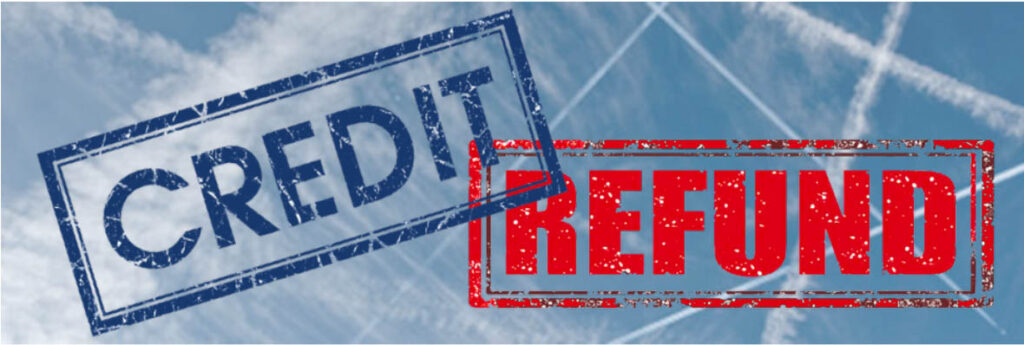The US Department of Transportation says Air Canada was the target of 1,705 refund complaints out of 10,415 filed against non-US airlines in the month – the second-highest number of complaints about refunds of any airline in May – outpacing all 80-plus foreign carriers in the category as well as more than 45 flight agencies.
United Airlines was the only airline – domestic or international – to notch more refund complaints at 3,215.
Air Canada and other Canadian carriers have refused to reimburse most customers whose flights were cancelled due to the COVID-19 pandemic, typically offering flight credit instead.
However, the US, like the European Union, requires airlines to refund passengers. A complaint to the US regulator offers a potential path to reimbursement for some Air Canada customers who have been turned down north of the border.
Air Canada’s tally of complaints came even as four US airlines as well as British Airways and Lufthansa carried more passengers on flights with a US segment than the Canadian airline, according to figures from the US Bureau of Transportation Statistics.
WestJet Airlines ranked right below Air Canada in cross-border passenger numbers, but garnered the sixth-most refund complaints among non-US airlines at 346. WestJet has said customers who booked US or UK flights are entitled to refunds.
Air Canada earned nearly twice as many complaints as the No. 2 foreign carrier on the list, TAP Air Portugal, which drew 901.
May marked the second month in a row that Air Canada has finished among the top tier of complaint targets, with the Montreal-based company’s portion on the rise.
It received 969 refund complaints out of 7,568 in April, or 13 per cent, according to the department. It ranked third for refund complaints of any carrier that month, after United Airlines and American Airlines.
“There’s a lot of pushback from the airline to refund passengers. They’re trying to offer vouchers or get out of their obligation to refund their passengers,”
Earlier this month the organization FORMidable Solutions released a free online tool to help passengers file formal complaints to the US transportation department. The complaint generator has now been used more than 2,000 times, said Taylor Bain, a second-year law student at the University of Ottawa and co-founder of the organization.
The US department’s April 3 enforcement notice states that “passengers should be refunded promptly when their scheduled flights are cancelled or significantly delayed,” and is applicable to US and foreign carriers.
“Although the COVID-19 public health emergency has had an unprecedented impact on air travel, the airlines’ obligation to refund passengers for cancelled or significantly delayed flights remains unchanged,” the directive states.
Air Canada has fought formal complaints to the Department of Transportation, arguing that the enforcement notice along with “the Department’s COVID-19 Refund FAQs are guidance documents only…and do not have the effect of law.”
The airline also states in departmental filings that it has fully complied with the terms of its contract of carriage, that its refund policy “is neither unfair nor deceptive” and that many airfares were purchased outside the US, making the enforcement notice “an unwarranted extraterritorial application of US law.”
The pandemic has devastated the airline industry as ongoing travel restrictions and flight-wary residents continue to weigh on demand.
The International Air Transport Association estimates Canadian airline revenues in 2020 will fall by $14.6 billion or 43 percent from last year. Passenger revenues at Air Canada dropped by 95 percent year over year in its second quarter, prompting 20,000 layoffs as the airline burned through $19 million of cash per day.
Airlines have prodded Ottawa and provincial governments to ease the blanket ban on foreign travellers, the Canada-US border shutdown and the two-week quarantine required of anyone entering the country, as well as the travel “bubble” in Atlantic Canada that requires two weeks of self-isolation for those arriving from outside the region.
The Canadian Transportation Agency said in March that airlines have the right to issue travel credit instead of a refund for cancelled trips in the “current context,” though the agency later clarified that the online statement was “not a binding decision” and that reimbursements depend in part on the contract between airline and passenger.

